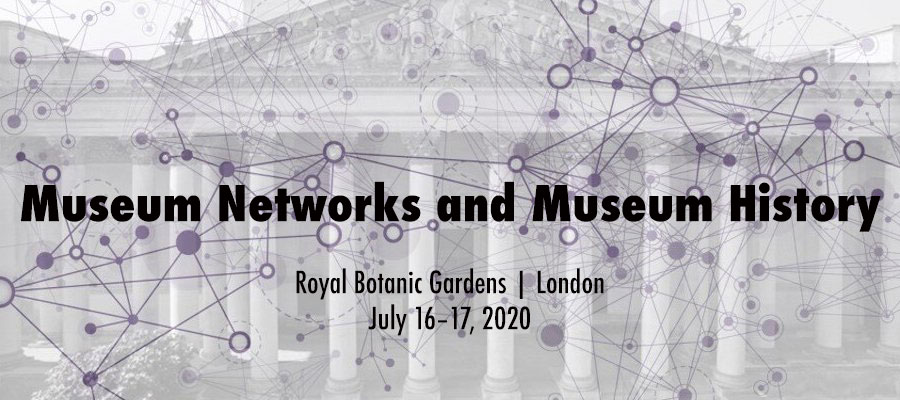Museum Networks and Museum History, Royal Botanic Gardens, Kew, London, July 16–17, 2020
Networks have become an increasingly important part of the analytical toolkit used by historians of museums and collections. As scholars have moved away from narrative institutional histories, they have embraced the study of social and material networks as approaches which expand understandings of museums. In Chris Gosden and Frances Larson's words, museums can then be seen as 'innumerable sets of connections between people and objects …[which] extend over time and through space'. Such approaches have themselves been fuelled by the growth of similar ideas such as Actor Network Theory and object biographies.
These new approaches have been especially useful in recovering forms of agency beyond those of powerful institutional actors, especially curators, and have highlighted the contributions of, for example, object creators and mediators, informants and collecting assistants, as well as, sometimes, of objects themselves. They have drawn attention to the formation of new social identities and forms of expertise; have shown the extent of material flows around the world in relation to museums; revealed the role of affect and the relational in museum history; and encouraged closer attention to the different physical properties of things. There have, though, been some differences of emphasis on whether networks in museum history are a useful metaphor, a set of statistical analyses, or a theoretical model.
This conference seeks to take critical stock of the role of networks in understanding the history of museums and collections. It welcomes proposals which use networks of various sorts as tools of analysis, or which engage with the methodological/theoretical issues raised by networks and/or the rejection of network approaches. It is keen to see proposals which interrogate approaches from other disciplines. Contributions may respond to (but are not limited to):
- Networks of museum donors and makers
- Networks and empire; networks and power
- Professional networks and modern identities
- Global and transnational networks
- Networks and the role of indigenous knowledge
- Affect and the role of materiality
- Actor Network Theory and museum/collection history
- Networks of museums, collections, people, objects
- Museum practice and museum networks
- The limits of networks as analytical tools
